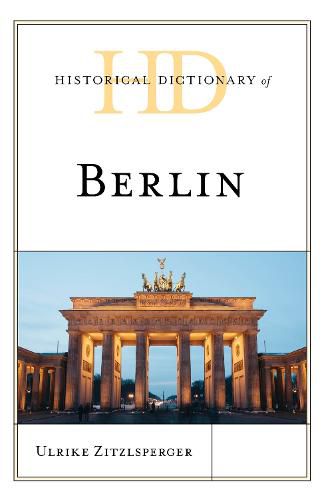Readings Newsletter
Become a Readings Member to make your shopping experience even easier.
Sign in or sign up for free!
You’re not far away from qualifying for FREE standard shipping within Australia
You’ve qualified for FREE standard shipping within Australia
The cart is loading…






After World War II Berlin became one of the playgrounds of the Cold War; the Berlin Wall made the division between East and West, between ‘capitalism’ and ‘communism’ in 1961 highly visible, though it did remove Berlin from front-line politics. East and West Berlin had turned into shop-windows of ideologies - West Berlin representing the lure of a market economy, East Berlin the promise of socialism. It is, then, fitting that the fall of the Wall in 1989 awarded Berlin such a prominent role. It was here that the development after Reunification of East and West became a closely observed event - and, well beyond Germany, Berlin appeared to represent fundamental developments throughout Europe at the time. Today, Berlin is the capital of reunified Germany and therefore one of the key political players in the European Union (EU) and it’s now a desirable destination for young entrepreneurs.
The Historical Dictionary of Berlin contains a chronology, an introduction, and an extensive bibliography. The dictionary section has more than 300 cross-referenced entries on important personalities, places, institutions, and events. This book is an excellent resource for students, researchers, and anyone wanting to know more about Berlin.
$9.00 standard shipping within Australia
FREE standard shipping within Australia for orders over $100.00
Express & International shipping calculated at checkout
After World War II Berlin became one of the playgrounds of the Cold War; the Berlin Wall made the division between East and West, between ‘capitalism’ and ‘communism’ in 1961 highly visible, though it did remove Berlin from front-line politics. East and West Berlin had turned into shop-windows of ideologies - West Berlin representing the lure of a market economy, East Berlin the promise of socialism. It is, then, fitting that the fall of the Wall in 1989 awarded Berlin such a prominent role. It was here that the development after Reunification of East and West became a closely observed event - and, well beyond Germany, Berlin appeared to represent fundamental developments throughout Europe at the time. Today, Berlin is the capital of reunified Germany and therefore one of the key political players in the European Union (EU) and it’s now a desirable destination for young entrepreneurs.
The Historical Dictionary of Berlin contains a chronology, an introduction, and an extensive bibliography. The dictionary section has more than 300 cross-referenced entries on important personalities, places, institutions, and events. This book is an excellent resource for students, researchers, and anyone wanting to know more about Berlin.